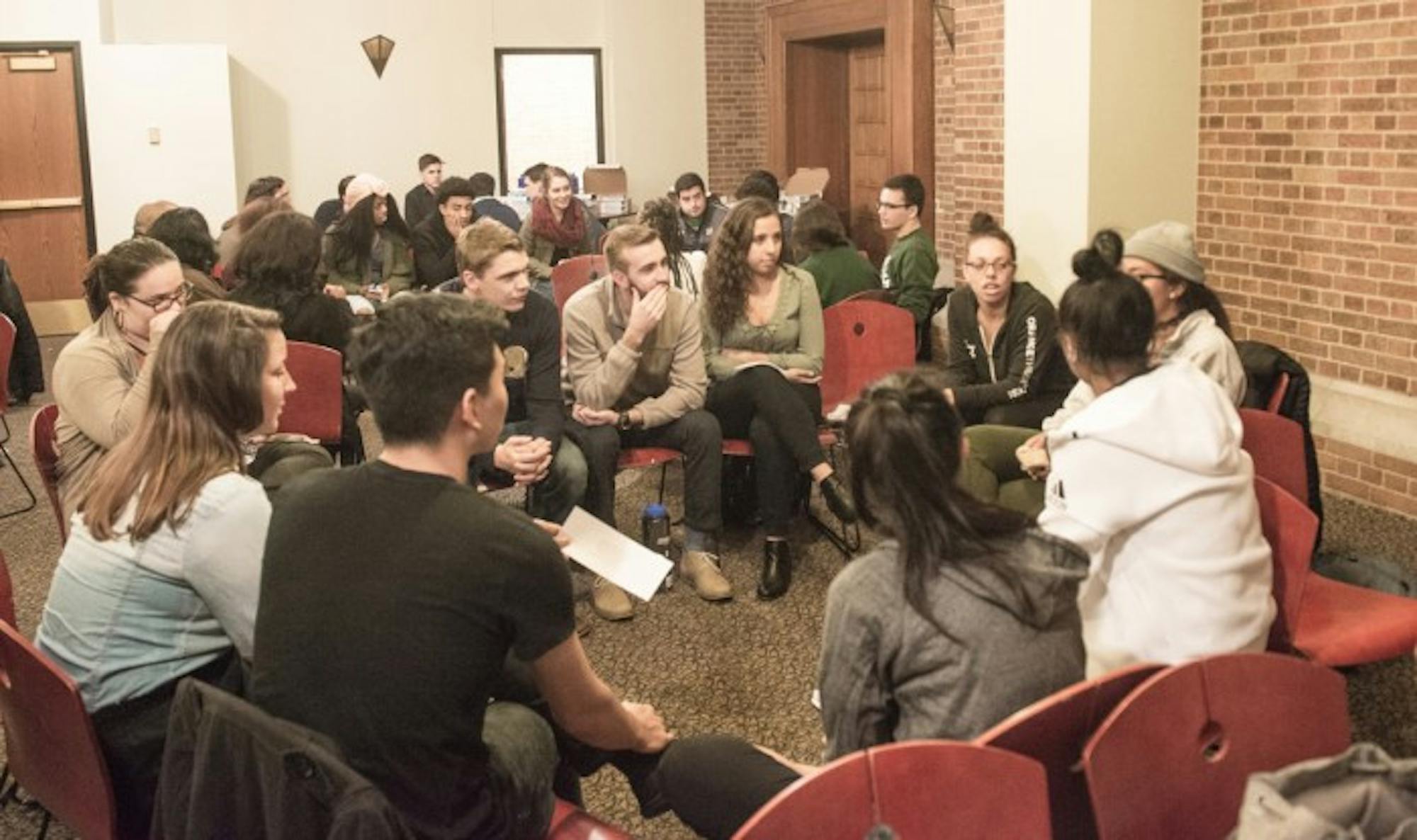Sponsored by Show Some Skin, Diversity Council, Africana Studies Club and Student Government, a student-run post-election forum Tuesday night titled “Can We Still Talk?” discussed ways to foster an inclusive community and positive dialogue at Notre Dame.
Senior Leah Jacob, a representative of Show Some Skin, said this year’s election brought about lots of questions about our identities. Jacob opened the forum explaining its central idea — to “point out that silence results in indifference” and “center students’ voices.”
“We really want to establish this consciousness in college,” she said. “And we will move from only talking about the problem to finding a solution, and try to find how to build a more inclusive environment for everyone.”
Saint Mary’s senior Brenna Leahy and Notre Dame senior Jourdyhn Williams, representatives of Diversity Council, examined reasons for and ways to address microagressions in the post-election time period.
“Microaggression can happen every day,” Williams said. “It can be verbal or nonverbal. It is non-violence, but it’s still hurtful.”
Some people unconsciously cause microaggressions toward others, Leahy added, though they don’t intend to cause harm.
“We speculated on where microaggressions come from, and there can be various sources — their prejudice, social status, even the internet,” she said.
In a college context, Williams said, microaggressions are generated when people don’t address others as people worthy of higher education.
“Sometimes these are only intended to be jokes, but cause harms,” Leahy said.
Sometimes microaggressions come from people’s privileges, Williams added. Privileges are very different from prejudices and even harder for themselves to realize.
Senior Jessica Pedroza, another keynote speaker, addressed the issue of hateful rhetoric on college campuses. She said people sometimes lack the awareness of how damaging language can be toward others.
“In the context of this election, a lot of hateful speeches were made against another race,” she said. “This caused so much panic and fear.”
“No one is illegal,” Pedroza said. “They are still humans that deserve respect.”
She added, it is “dehumanizing to call undocumented people illegal.”
“In genera,l however, we still see in the news, in middle school, that small kids were bullied by hateful languages,” Pedroza said. “Yet we should know that language is important and hateful rhetoric is happening in a lot of places.”
The key to tackling hateful rhetoric and microaggressions is to listen, Jacob said.
“It’s not about winning an argument and proving that others were wrong,” she said. “We at the same time still should show them our respect without interrupting them.
“Conversation is very important, especially when we need to let marginalized groups be heard.”













